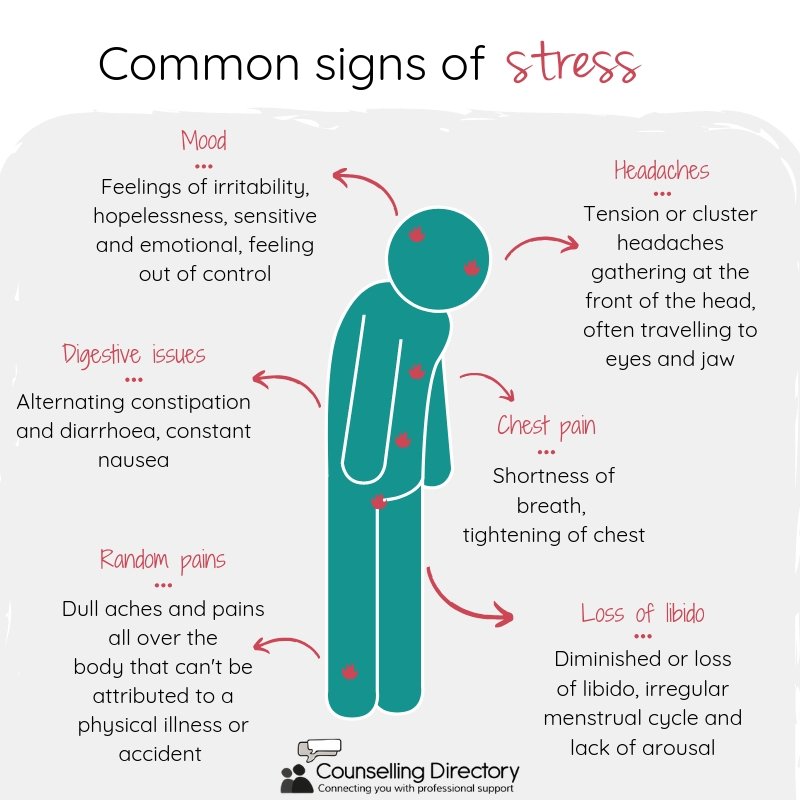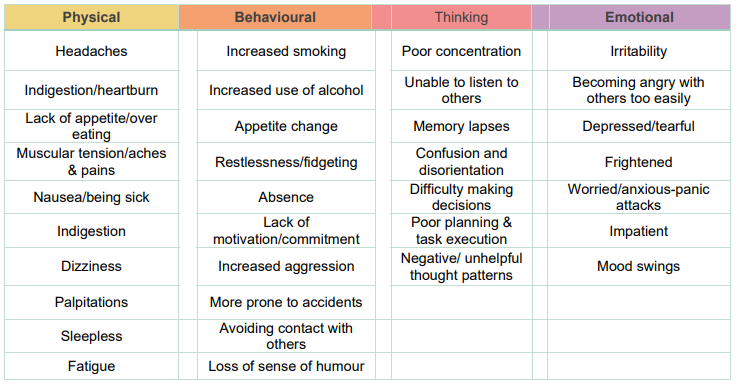Beyond the Surface: Unveiling Hidden Signals of Stress
In the hustle and bustle of modern life, stress has become an almost omnipresent companion for many. From the pressures of work and relationships to the challenges of daily responsibilities, stress can infiltrate every aspect of our lives. However, despite its prevalence, stress often hides in the shadows, manifesting in subtle ways that may go unnoticed until it reaches a tipping point. Understanding the signs of stress is crucial for maintaining mental and physical well-being.
In this article, we delve into the intricate stress signals, shedding light on their subtle manifestations and offering strategies for effective stress management.
Understanding Stress
Before delving into the signs of stress, it’s essential to grasp the nature of stress itself. Stress is the body’s natural response to perceived threats or demands, triggering a cascade of physiological and psychological reactions to prepare us to deal with the perceived challenge. While acute stress can be adaptive, chronic stress, characterized by prolonged exposure to stressors, can wreak havoc on our health and well-being. If you want to explore how stress affects your daily life, click here now and prevent it from taking a toll on your health.

Identifying Signs of Stress
Physical Signs of Stress
- Fatigue and Insomnia: Persistent fatigue or difficulty falling and staying asleep can be indicative of underlying stress.
- Muscle Tension: Tightness in the muscles, especially in the neck, shoulders, and back, can result from chronic stress.
- Headaches and Digestive Issues: Stress can manifest as frequent headaches, gastrointestinal discomfort, or exacerbation of pre-existing conditions like irritable bowel syndrome (IBS).
Emotional Signs
- Anxiety and Irritability: Excessive worrying, nervousness, and irritability are common emotional responses to stress.
- Mood Swings: Fluctuations in mood, ranging from sudden outbursts of anger to feelings of sadness or hopelessness, may signal underlying stress.
- Difficulty Concentrating: Stress can impair cognitive function, leading to difficulties in concentration, memory lapses, and indecisiveness.
Behavioral Stress Symptoms
- Changes in Eating Habits: Stress can trigger changes in appetite, leading to overeating or loss of appetite.
- Social Withdrawal: Feeling overwhelmed by stressors may prompt individuals to withdraw from social interactions and activities they once enjoyed.
- Increased Substance Use: Some individuals may turn to alcohol, tobacco, or other substances as a coping mechanism for managing stress, leading to potential substance abuse issues.
Interpersonal Signs
- Conflict in Relationships: Stress can strain relationships, leading to increased conflicts, communication breakdowns, and feelings of resentment.
- Isolation: Individuals experiencing high levels of stress may isolate themselves from friends, family, and support networks, exacerbating feelings of loneliness and alienation.
- Lack of Empathy: Chronic stress can diminish one’s capacity for empathy, making it challenging to connect with others on an emotional level.
Cognitive Stress Signals:
- Negative Thinking Patterns: Stress often fuels negative thinking patterns, such as catastrophizing or constant self-criticism.
- Perfectionism: The pressure to excel under stressful circumstances may exacerbate perfectionistic tendencies, leading to heightened self-imposed expectations and fear of failure.
- Rumination: Dwelling on past events or worrying excessively about the future are common cognitive responses to stress, perpetuating a cycle of distress.

How to Manage Stress Effectively?
Stress management encompasses a range of techniques and strategies aimed at reducing the negative effects of stress on both mental and physical health. By implementing effective stress management practices, individuals can better cope with life’s challenges, enhance resilience, and improve overall well-being.
Let’s explore some key components of stress management:
Awareness and Identification of Stressors:
- The first step in stress management is recognizing the sources of stress in your life. These stressors can be external, such as work deadlines, financial pressures, or relationship conflicts, or internal, such as perfectionism or negative self-talk.
- Keeping a stress journal can help identify patterns and triggers, allowing for targeted interventions.
Healthy Lifestyle Habits:
- Regular exercise has been shown to reduce stress levels by releasing endorphins, improving mood, and promoting relaxation. Aim for at least 30 minutes of moderate exercise most days of the week.
- Prioritize nutrition by consuming a balanced diet rich in fruits, vegetables, whole grains, lean proteins, and healthy fats. Avoid excessive caffeine, sugar, and processed foods, which can exacerbate stress.
- Ensure adequate sleep by practicing good sleep hygiene habits, such as maintaining a consistent sleep schedule, creating a relaxing bedtime routine, and avoiding screens before bedtime.
Stress Reduction Techniques
- Mindfulness meditation, deep breathing exercises, and progressive muscle relaxation can help activate the body’s relaxation response, counteracting the physiological effects of stress.
- Incorporate mindfulness practices into daily life by engaging in activities such as mindful eating, walking, or simply taking moments to pause and observe your surroundings.
- Yoga combines physical postures, breathwork, and meditation to promote relaxation, flexibility, and stress reduction.

Time Management and Organization:
- Effective time management can prevent feelings of overwhelm and reduce stress levels. Break tasks into smaller, manageable steps, prioritize them based on importance and urgency and use tools such as calendars or to-do lists to stay organized.
- Learn to set boundaries and say no to additional commitments when your plate is full. Delegate tasks when possible and focus on activities that align with your priorities and values.
Social Support and Connection:
- Strong social support networks can buffer the effects of stress and provide emotional validation and practical assistance during challenging times.
- Nurture relationships with friends, family, and community members by spending quality time together, engaging in meaningful conversations, and offering and seeking support when needed.
Cognitive Restructuring and Coping Skills:
- Challenge negative thinking patterns and irrational beliefs that contribute to stress and anxiety. Replace them with more realistic and adaptive thoughts through cognitive restructuring techniques.
- Develop coping skills such as problem-solving, assertive communication, and emotional regulation to effectively manage stressors and navigate difficult situations.
Seeking Professional Help:
- If stress becomes overwhelming or interferes with daily functioning, don’t hesitate to seek support from mental health professionals, such as therapists, counselors, or psychiatrists.
- Therapy can provide a safe space to explore stressors, learn coping strategies, and develop resilience skills to better manage stress and improve overall well-being.
- Incorporating a combination of these stress management techniques into your daily routine can empower you to effectively navigate life’s challenges, reduce the negative impact of stress, and cultivate a greater sense of balance, resilience, and vitality. Remember that stress management is a journey, and it’s essential to prioritize self-care and seek support when needed.
Conclusion:
Recognizing the signs of stress is the first step towards reclaiming control over our well-being. By paying attention to subtle cues—whether they manifest physically, emotionally, behaviorally, interpersonally, or cognitively—we can intervene early and implement effective stress management strategies.
Through self-care practices, healthy coping mechanisms, time management strategies, and seeking professional support, we can navigate life’s challenges with resilience and embrace a path toward holistic well-being. Remember, stress may be inevitable, but how we respond to it ultimately shapes our journey toward a balanced and fulfilling life.
